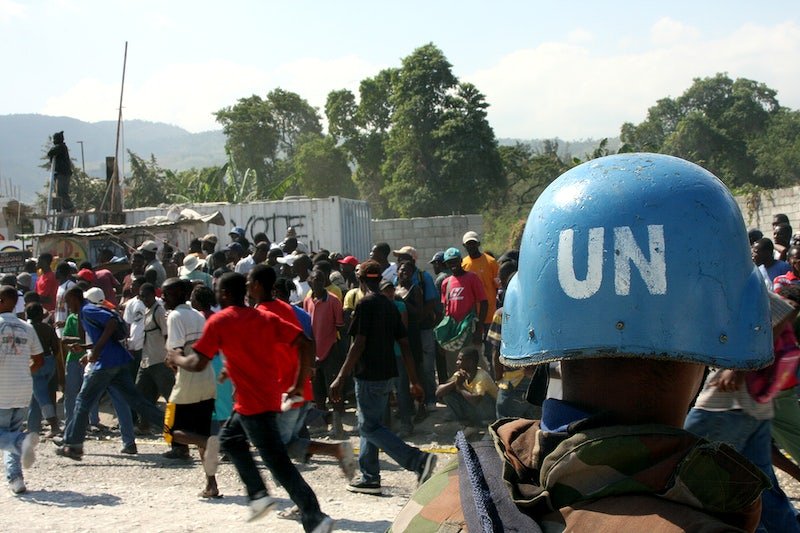Haiti gang members rampaged through two upscale neighborhoods and attacked the home of a judge on Monday, leaving at least a dozen people dead. Both of these neighborhoods were considered safe at the start of the gang warfare in Haiti. During that time, police stations, prisons, and other institutions were also targeted.
In the capital of Haiti, Port-au-Prince, there are two major gangs known as the G9 and G-Pep who have been in conflict for years now. Just last year, these two gang coalitions decided to form a pact to cooperate and remove Prime Minister Ariel Henry, according to Al Jazeera. Most of these gangs seek to engage in illicit activities but also gain influence and power in the government. Many of the gangs in Haiti are connected to politicians and businessmen.
Since Haiti’s former president was assassinated in 2021, the country hasn’t had a major governing leader other than Ariel Henry, who has recently resigned after the gang insurrection in late February, leaving the country scrambling for a transitional council, with U.S. and Caribbean powers leading the initiative to assert one.
Gang violence in Haiti finds itself at the center of many problems for the country’s citizens, the most obvious being civilian deaths, with a total death toll of nearly 5,000 reported this January. However, gang warfare has had a variety of implications. For one, as a result of the recent attacks in Port-au-Prince, 3,000 pregnant women risked giving birth without maternity care due to the closure of hospitals, according to UN estimates as reported by BBC. In addition, just this past Monday, the entire capital was left in total darkness after four substations of Haiti’s power company were completely thrashed as a result of gang attacks. Adding to the chaos, as violence spreads to even more rural areas, supply-chain hold-ups increase as companies back out, stunting the economy. This leads to skyrocketing prices in these areas, depriving the population of bare necessities like food and water, which are already scarce. What is the result of these compounding issues? Hundreds upon thousands of Haitians are forced to evacuate their homes, taking shelter in temporary camps as violence pervades their neighborhoods.
However, gang violence is by no means the only issue plaguing Haiti. Historically, Haiti has suffered from natural disasters such as floods, hurricanes, earthquakes, and tornadoes, causing massive environmental damage to the country. Haiti is also among the nations with the highest hunger rates internationally, with “… 4.35 million people [that] are facing extreme hunger – including nearly 1.4 million on the brink of starvation,” according to the United Nations, a statistic that often goes ignored and untalked about. Increasingly violent conditions in Haiti only further delay humanitarian response from international groups and organizations like the UN, CARE, and others known for their aid, exacerbating already existing issues within the country. Still, organizations like UNESCO are doing their best to continue aid despite the ongoing violence.
Haiti’s government has tried to implement countermeasures such as late-night curfews and protest bans but with limited effectiveness. As it stands right now, the Haitian National Police are completely outgunned, according to William O’Neill, a UN expert on human rights. “One of the biggest problems is a massive flow of guns and ammunition from the United States to Haiti,” he said to news source Al Jazeera. “They need support, they’ve been begging for support.”
These factors all contribute to the nation’s growing instability and challenges to restoration. With tensions high and increasingly dangerous conditions as described above, Haiti is in an incredibly precarious situation– potentially even on the precipice of collapse. It needs help from whatever sources it can get, as it faces one of the greatest humanitarian crises we’ve seen in recent years.














































































































































